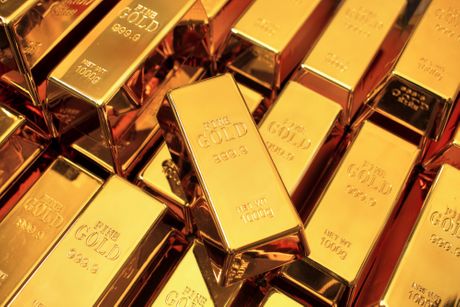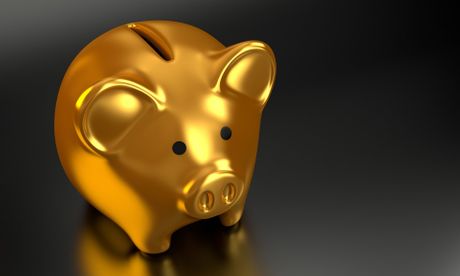Serbia avoids "black swan" economic crisis scenario thanks to investing in gold reserves
Economists are intensely discussing the consequences on the economy of the coronavirus pandemic

Thanks to the policy of buying gold in recent years, our country has managed to secure 31.26 tons of this precious metal and thus insure the domestic market from excessive harmful impact on the economy of the current pandemic.
Professor at the Belgrade Banking Academy Zoran Grubisic adds that gold has always shown itself to be a good guardian of values in "turbulent" times, especially when an economic crisis lasts and when it is unpredictable how deep the consequences it might leave on a country.
Serbia has 31.26 tons of gold at its disposal, which is an increase of 50 percent compared to the same period last year, while the total value of gold in the foreign exchange reserves of the National Bank of Serbia (NBS) currently amounts to 1.58 billion euros, the NBS told Tanjug.
"Gold is the best safe harbor or, if nothing else, a 'hedging' instrument, which protects against numerous risks and contributes to a significant diversification of the portfolio, i.e., the total value of assets," Grubisic explains for Tanjug.
During this year, the average price of gold was about $1,627 per fine ounce, ranging from about $1,450 (in mid-March) to $1,765 (in mid-May), indicating that the price of gold went up by more than 20 percent in just two months.
At the beginning of October 2019, the National Bank of Serbia bought nine tons of gold of the highest quality on the international market, while the central bank has not been selling any gold since 2005.
The average price at which gold was bought abroad in October last year was $1,503.16 per fine ounce. According to the latest data, gold participates with about 11 percent in the total foreign exchange reserves of the state.
"By further increasing the amount of gold, the significant harmful impact of the current pandemic on the financial system and economy of our country, the so-called the black swan effect has been avoided," says Grubisic.
In the past few days, the price of gold was around $1,712 per ounce, so the calculation shows that the growth of price of this precious metal is about 14 percent, also contributing to growth of the value of our country's foreign exchange reserves.
"By doing so, we have once again shown that we think and act proactively, that is, that we prepare in time, in favorable and relatively peaceful periods, for possible upcoming uncertainty," they say in the NBS.
NBS regularly buys gold bars
Of the total amount of gold, about 68 percent is located in the NBS vault, while about 32 percent is in the NBS accounts abroad.
In addition to buying in the international market, the NBS regularly buys gold bars from domestic production, from the company Serbia Zijin Bor Copper.
In the same period last year, the bank had a total of 20.81 tons of gold, while since then the reserve has increased by 10.45 tons or by bout 50 percent.
Grubisic says that Serbia has followed international trends in recent years and has been buying gold, just as some other central banks, notably of Russia and the US.
According to him, gold reserves are important for every potential investor because, as a rule, investors first look at the macroeconomic picture of a country, stability, sustainability, and long-term economic policy.
Low inflation is an indicator of stability along with foreign exchange reserves, a stable exchange rate, the total amount of domestic currency in circulation, and the number of months are imports covered by foreign exchange reserves, and in our country that has been about seven months.

Is the end of the crisis in sight?
According to Grubisic, gold also has a "calming" effect, and in the event that a lack of confidence appears within financial institutions or there is panic due to instability in domestic and international markets, it serves as "ammunition" for intervention.
When asked by Tanjug, when, in his opinion, domestic and international markets could recover completely, Grubisic explained that - when taking into account the current situation in stock exchanges and the behavior of big players in the world - it seems that the market recovery has started.
However, he added, "the million dollar question" is whether this recovery is temporary, or if the crisis will deepen in another wave.
Time will tell whether and when the situation in the world will return to the level before the beginning of the pandemic, says Grubisic, but points out that one of the key "recipes" for recovery is - to cause optimism in the market.
"It's a key measure of economic policy of all central banks," he says.
Video: Croatia doesnt have a gram while Serbia has plenty of this metal over which battles are still fought
(Telegraf Biznis/Tanjug)
Telegraf.rs zadržava sva prava nad sadržajem. Za preuzimanje sadržaja pogledajte uputstva na stranici Uslovi korišćenja.




